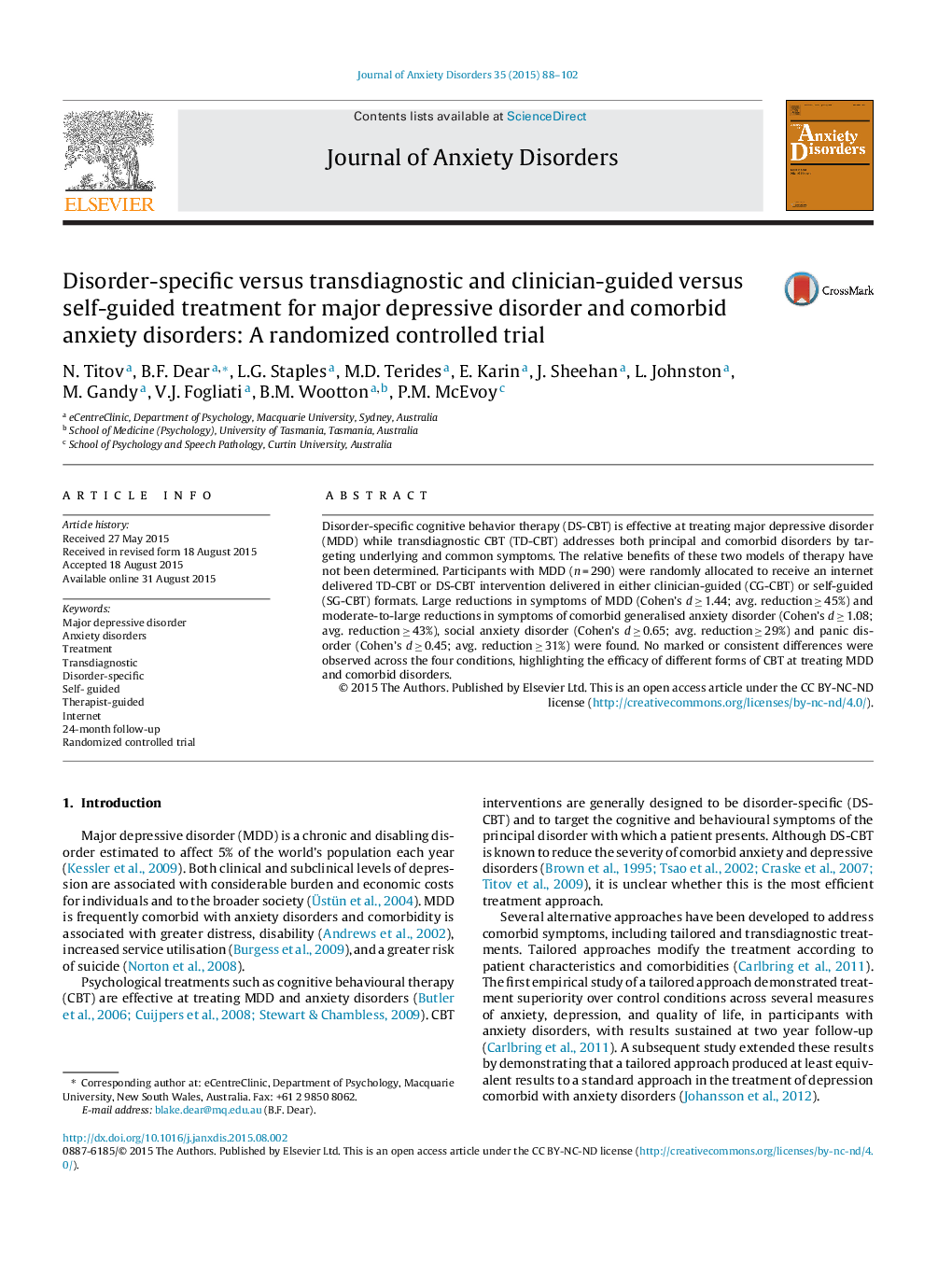| Article ID | Journal | Published Year | Pages | File Type |
|---|---|---|---|---|
| 7267328 | Journal of Anxiety Disorders | 2015 | 15 Pages |
Abstract
Disorder-specific cognitive behavior therapy (DS-CBT) is effective at treating major depressive disorder (MDD) while transdiagnostic CBT (TD-CBT) addresses both principal and comorbid disorders by targeting underlying and common symptoms. The relative benefits of these two models of therapy have not been determined. Participants with MDD (n = 290) were randomly allocated to receive an internet delivered TD-CBT or DS-CBT intervention delivered in either clinician-guided (CG-CBT) or self-guided (SG-CBT) formats. Large reductions in symptoms of MDD (Cohen's d â¥Â 1.44; avg. reduction â¥Â 45%) and moderate-to-large reductions in symptoms of comorbid generalised anxiety disorder (Cohen's d â¥Â 1.08; avg. reduction â¥Â 43%), social anxiety disorder (Cohen's d â¥Â 0.65; avg. reduction â¥Â 29%) and panic disorder (Cohen's d â¥Â 0.45; avg. reduction â¥Â 31%) were found. No marked or consistent differences were observed across the four conditions, highlighting the efficacy of different forms of CBT at treating MDD and comorbid disorders.
Keywords
Related Topics
Health Sciences
Medicine and Dentistry
Psychiatry and Mental Health
Authors
N. Titov, B.F. Dear, L.G. Staples, M.D. Terides, E. Karin, J. Sheehan, L. Johnston, M. Gandy, V.J. Fogliati, B.M. Wootton, P.M. McEvoy,
